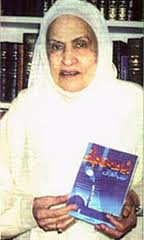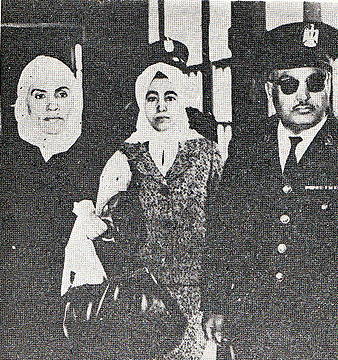 Ahmad Fuad Rahmat | Research Fellow, Islamic Renaissance Front (IRF)
Ahmad Fuad Rahmat | Research Fellow, Islamic Renaissance Front (IRF)
Feminism is always a challenge for any community. This is because feminism, in essence, is more than just about the right for women to vote, drive or work. Feminism is ultimately about gender justice, and the improvement of the status of women and their empowerment, individually and collectively. Thus, while it is true that particular demands for changes in policy can be made and deadlines can be set, the question of whether those policies are just, and more importantly, empowering, is a more difficult question to answer.
The Empowerment of Women
Empowerment is ultimately determined by attitudes in how choices are made, and freedoms are exercised. The empowerment of women cannot be measured by the extent to which individual women have choices, but how their choices can collectively translate, or lead to, their overall progress and dignity. In other words, the success of feminism anywhere, depends not only on more policies, but more crucially the enlightenment of women.
Feminism is political because it is a struggle, but feminism is also philosophical and ideological because the struggle can only make sense when grounded on a moral vision. Freedom and power without purpose is meaningless. For their potential to be realized, they must be rooted to more fundamental questions: what does it mean to be a free and empowered woman? How is that power to be exercised in our daily existence and relations with others?
The importance of moral vision in defining any feminist struggle not only explains the development of different feminist ideologies throughout history, it also explains the many antagonisms and incompatibilities between them. This antagonism has perhaps been most pronounced in feminist movements in the Muslim world, whereby the notion of women’s empowerment – because of their perceived associations with European and colonial values – must be continuously redefined and debated.
Matters are further complicated by the fact that the struggle for gender justice in the Islamic context can never be thought about on its own, as if in a vacuum devoid of concerns about geopolitics, national interests and the design of local laws. The challenge is made more difficult by the reality that the overwhelming majority of the Islamic world is still reeling from the traumatic effects of being under the yolk of centuries of colonial rule that saw their wealth and their political and academic institutions – secular and religious – exploited and manipulated, and their society influenced by Western and modern ideals and expectations.
Thus, the question of Islamic feminism can never just be about the welfare of Muslim women. It is always already wedded to questions about the well being of the Muslim community as a whole.
 It was in this complication of circumstances that the feminism of Zainab Al-Ghazali developed in late 19th and early 20th century Egypt. Its historical and ideological stakes are particularly important for us to consider because Al-Ghazali’s feminism, as we shall see, is not one that can be easily reduced to common political labels.
It was in this complication of circumstances that the feminism of Zainab Al-Ghazali developed in late 19th and early 20th century Egypt. Its historical and ideological stakes are particularly important for us to consider because Al-Ghazali’s feminism, as we shall see, is not one that can be easily reduced to common political labels.
There was an equal presence of both strongly conservative and strongly progressive strands to her thinking. The context is also important because the condition of Egyptian Muslim women was the pretext the sustained presence of British colonial power in their country and the nationalist response to it. 1 Those responses, which eventually generated the earliest feminist debates in Egypt, became the backdrop at which Al-Ghazali flourished as a feminist thinker.
I will explain that context in further detail, after which I will explain Zainab Al-Ghazali’s particular feminist response to it, which will serve to show the uniqueness of the feminist perspective she represented.
Feminism in Early Modern Egypt
The nationalist opposition to British colonialism, led by and large by men in turn, would portray “the nation as a woman, evoking the conflation of patriotism with the protection of one’s women”. 2 Women, while mainly playing secondary roles in early anti-colonial politics, was nonetheless present as a symbol for the prize in the struggle between colonial and nationalist masculinities. The struggle was clearly between Western hegemony and Egyptian nationalist aspirations, but it was driven, shaped and imagined chiefly by the fighting spirit of men.
This explains why the earliest feminist debates in Egypt were in fact led by men. The key debate centered on the different worldviews of Qasim Amin and Ta’lat Al-Harb. Amin, represented the modern approach, claiming that the freedom of women is a value inherent to Islam. Viewing Europe as the example to emulate – contrasting it with a backward and despotic Egypt – Amin criticized the veil, encouraged the education of women, their participation in civic affairs and called for the end of polygamy and more lax divorce laws to favor women’s rights.
His brand of feminism, along with his Turkish background, French education, and Eurocentric outlook led him to be branded as a mouthpiece for colonialism. What is more important for us to note about Amin is that “one can read in his writings a tone which is utterly patriarchal, in which the emancipation of women is viewed in terms of what profits it will bring to men, rather than what moral obligation it should render upon society.”3
At the end of the spectrum Ta’lat Al-Harb: Chastizing Amin’s Eurocentric outlook, Al-Harb called for a return to Islam’s roots to argue for the social seclusion and veiling of (the face and hands of) women. He called for the education of women, but nonetheless insisted that it should be restricted to ensuring their assent to traditional religious values (defined in his terms of course). In light of this, Amin’s ideas appear to Al-Harb as nothing more than a clandestine way for colonial culture to overtake Egypt’s Islamic values through the cloak of women’s rights.
This comparison is of course not exhaustive of the diverse range of feminist thought that eventually developed in Egypt, but it does reflect the extremes in the formative discourse of Egyptian feminism. One of the most prominent thinkers, and pioneering activist, that emerged therein was Huda Sha’rawi, founder of the Egyptian Feminist Union (henceforth the EFU), which called for women’s equality and freedom in both public and private spheres. But as a person of elite background who was deeply exposed to francophone culture and politics, her work was often considered as part of the modernist camp.
The Feminism of Zainab Al-Ghazali
Zainab Al-Ghazali was another figure who rose to prominence in the debates. She was once a member of Sha’rawi’s EFU but could not be convinced of its Eurocentric orientation and sympathies towards secularism. Al-Ghazali then went on to establish Jamiat al-Sayyidat al-Muslimeen, or the Muslim Ladies Association (henceforth the MLA) in 1936, which called for a return to Islam as a source of moral progress for women.
This affinity with an Islam-inspired politics brought the MLA closer to the Muslim Brotherhood, where Al-Ghazali developed an effective working relationship with Sayyid Qutb, the Brotherhood’s chief ideologue. At any rate, both organizations shared a call for the extensive Islamization of Egyptian society, against the secular commitments of Gamel Abdel Nasser’s government.
This antagonism made the Brotherhood and its allies the specific target of persecution by Nasserist regime when they became suspects of a failed assignation attempt against him. Zainab Al-Ghazali was among those captured, and eventually tortured, by the authorities.
As was mentioned earlier, in order for us to properly understand Zainab Al-Ghazali’s feminism, we must begin by noting that it cannot be simplified as just another replication of the crude traditional Islamic take on women. The Islamic inspiration underlying her writings and activism is evident but we must understand that in light of Al-Ghazali’s broader attempts to fuse a complex and creative feminist vision in light of the realities of Egyptian women at the time.
This should not be read to mean, however, that she was a mere “moderate”. As we shall soon see, Al-Ghazali’s feminism maintained a radical and confrontational edge. She was imprisoned and tortured for her activism and her philosophical convictions enabled her to stay resilient throughout.
1 Lewis. P. Zainab Al-Ghazali: Pioneer of Islamist Feminism. 8
2 Ibid.
3 Lewis. P. Zainab Al-Ghazali: Pioneer of Islamist Feminism. 9.
